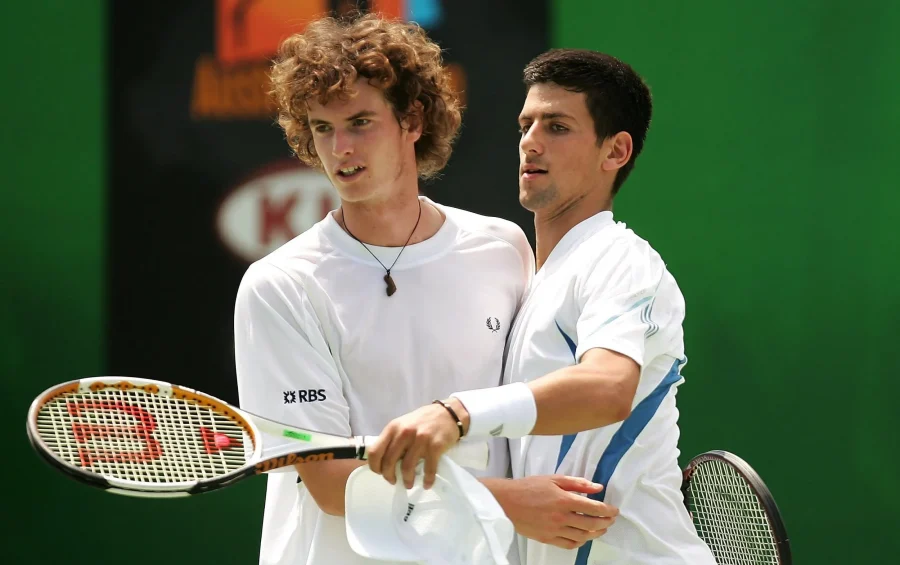The irony of Serbia’s dominant win over Great Britain on Thursday is that Novak Djokovic, the world’s best player, flirted with becoming a British citizen when he was still a teenager.
Indeed, Djokovic’s brief dalliance with the Lawn Tennis Association came immediately after he had provided a preview of this week’s action by crushing British hopes in the Davis Cup.
In the autumn of 2006, Serbia and Montenegro (the former Yugoslavian states were yoked together then) scored a 3-2 victory at Glasgow’s Braehead Arena. Djokovic won both his singles matches, overcoming first Arvind Parmar and then Greg Rusedski.
And here’s another irony: Rusedski had already provided an living example of how the transfer might work. Rusedski initially met with scoffing and scepticism when he transferred his nationality from Canada in 1995. But the fuss soon died down when he reached the 1997 US Open final.
Think, too, of the way that Rusedski’s often frosty rivalry with Tim Henman created a dramatic narrative of its own, commandeering thousands of column inches and broadcast hours. In 2006, Djokovic was 19 – and so was the fast-emerging Andy Murray, who was born just a fortnight earlier in 1987. The prospect of a Henman-Rusedski Mark II must have warmed the hearts of the marketeers.
But what about the obvious and essential problem? Djokovic was not British. Not even a tiny bit. Whereas Rusedski’s mother hailed from Dewsbury in Yorkshire.
The short answer is that such details would have been conveniently overlooked. At the time, the International Tennis Federation rules required only three years’ residency for a transfer of nationality in the Davis Cup. Plenty of lesser players have become British for pragmatic reasons, notably Slovenia’s Aljaz Bedene (whose ranking peaked at No43 in the world).
From Djokovic’s perspective, the motivation was simple: cash. As a five-year-old growing up in the mountain resort of Kapaonik, he had been fortunate to meet Jelena Gencic, a former national champion who had already turned Monica Seles into a worldbeater. —AP










